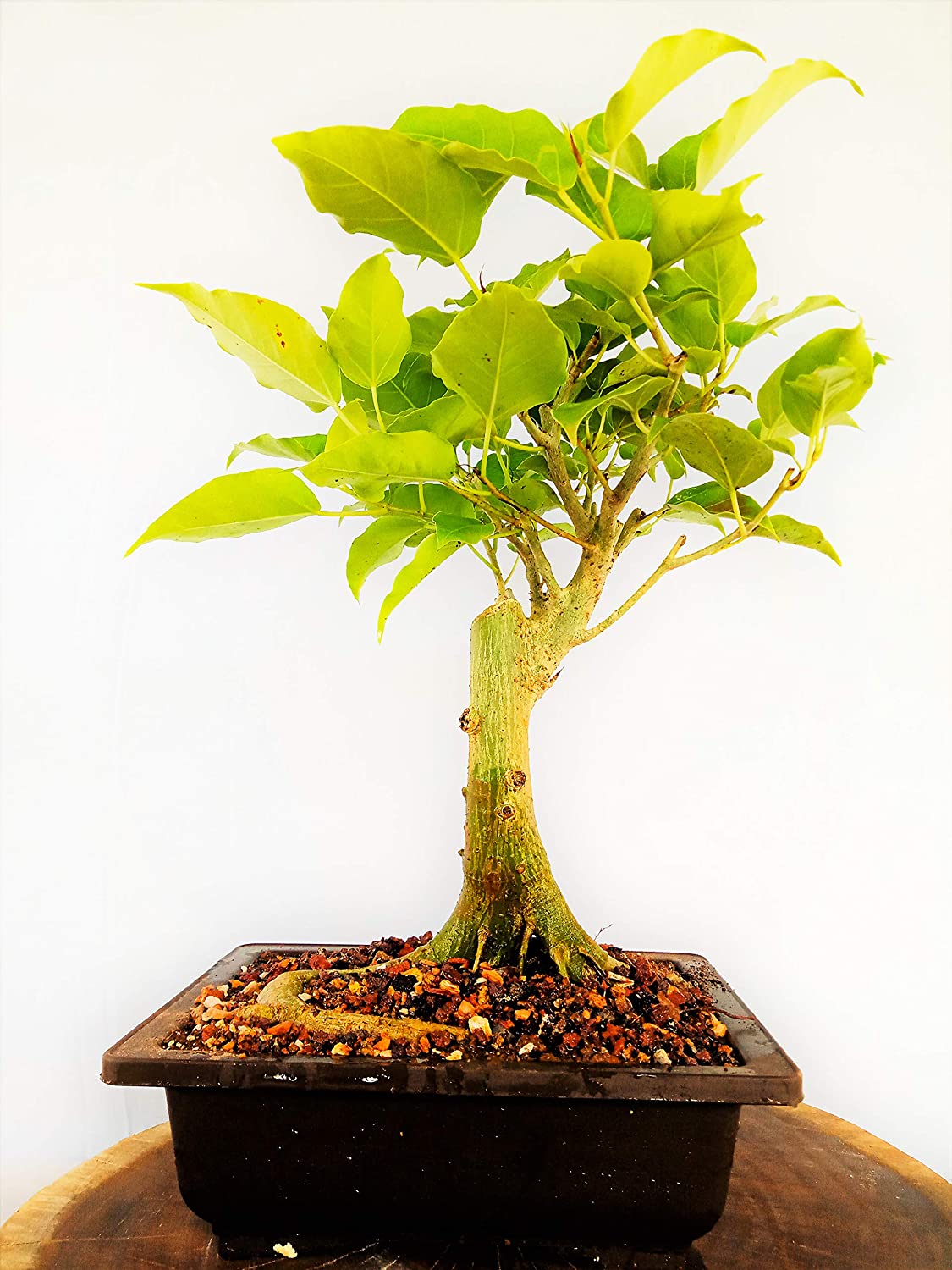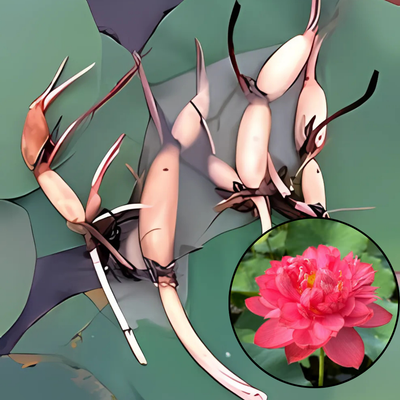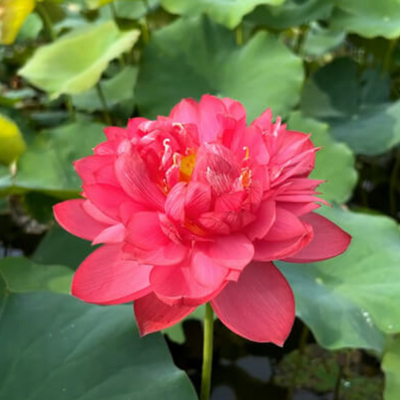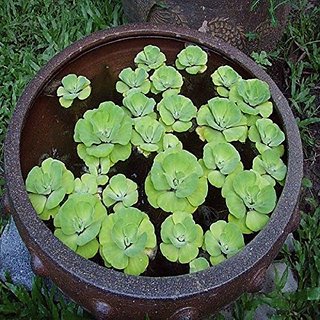
Bonsai Tree Ficus Religiosa 5 years Old with Pot Live Plant
Guaranteed Safe Checkout
Green Paradise Offers 5 Years Old Bonsai
Ficus Religiosa Plant
About Bonsai Ficus Religiosa Plant
The Bonsai Tree Ficus Religiosa, commonly known as the Sacred Fig or Bodhi tree, is a species of fig tree native to the Indian subcontinent. It is revered in various cultures and religions, particularly in Buddhism, as it is believed to be the tree under which Siddhartha Gautama, the historical Buddha, attained enlightenment.
A 5-year-old Bonsai Tree Ficus Religiosa plant is still relatively young in terms of bonsai cultivation. At this age, it would typically have a trunk diameter of around 1-2 inches (2.5-5 cm) and a height of approximately 12-18 inches (30-45 cm). The tree's overall shape and appearance would be well-developed, showcasing the characteristic features of a mature bonsai.
The leaves of the Ficus Religiosa are bright green and heart-shaped, which adds to its aesthetic appeal. As a bonsai, this tree requires regular care and maintenance to keep it healthy and maintain its miniature form.
Here are some essential aspects to consider when caring for a 5-year-old Bonsai Tree Ficus Religiosa:
Watering:
-
Bonsai trees need consistent moisture, but they should not be overwatered.
-
The soil should be kept slightly damp, allowing it to dry out slightly between watering sessions.
-
The frequency of watering depends on factors like climate, pot size, and soil composition.
Light and Temperature:
-
The Ficus Religiosa bonsai prefers bright, indirect light.
-
Place it near a window where it can receive sufficient sunlight.
-
This tree thrives in warm temperatures, ideally between 65-85°F (18-29°C).
Pruning and Trimming:
-
Regular pruning is essential to maintain the bonsai's shape and encourage branching and leaf growth.
-
Trim back new growth to maintain the desired form and remove any dead or diseased branches.
Fertilization:
-
Fertilize the bonsai during the growing season, typically from spring to autumn.
-
Use a liquid fertilizer that has been diluted to half the recommended strength or a balanced, slow-release bonsai fertilizer.
-
For best results, adhere to the directions on the fertilizer packaging.
Repotting:
-
Bonsai trees usually require repotting every 1-2 years to provide fresh soil and promote root health.
-
Repotting is typically done in spring when the tree is entering its active growth phase.
Training and Wiring:
-
Wiring is a technique used to shape the branches of a bonsai tree.
-
Use soft aluminum or copper wire to gently guide the branches into the desired position.
-
Be careful not to damage the branches or restrict their growth.
It's important to note that bonsai cultivation requires patience and attention to detail. By providing proper care and following bonsai-specific techniques, your 5-year-old Bonsai Tree Ficus Religiosa can continue to develop and mature into a beautiful and captivating miniature tree.
How To Grow Bonsai Tree Ficus Religiosa Plant
Growing a bonsai tree, such as Ficus religiosa (sacred fig or peepal tree), can be a rewarding and artistic endeavor.
Here are some general guidelines on how to care for and develop a 5-year-old Ficus religiosa bonsai:
Choosing the right plant:
-
Look for a healthy Ficus religiosa sapling that is suitable for bonsai cultivation.
-
Make sure it has a well-developed trunk and desirable characteristics for bonsai aesthetics.
Potting:
-
Select a bonsai pot that is slightly larger than the current root system.
-
Use a well-draining bonsai soil mix that retains moisture without becoming waterlogged.
-
Ensure that the pot has sufficient drainage holes.
Pruning:
-
Regular pruning is essential for bonsai tree development.
-
Start by removing any branches that are dead, damaged, or unnecessary.
-
Prune back long shoots to maintain the desired shape and size.
-
As you prune, aim for a balanced distribution of foliage and branches.
Wiring:
-
Wiring helps in shaping and training the bonsai's trunk and branches.
-
Wrap anodized aluminum or copper wire around the branches, bending them gently into the desired positions.
-
Be cautious not to cause damage or constrict the tree.
-
Check the wiring regularly to prevent it from cutting into the bark.
Watering:
-
Ficus religiosa bonsai trees prefer slightly moist soil.
-
Water the tree completely when the top inch of the soil feels dry.
-
Refrain from overwatering to prevent root rot.
-
Cover the soil humidity regularly and acclimate soddening consequently.
Fertilizing:
-
Bonsai trees benefit from regular fertilization during the growing season (spring to autumn).
-
Use a balanced, slow-release organic fertilizer or a liquid bonsai fertilizer.
-
Follow the manufacturer's instructions for dosage and frequency.
Sunlight and temperature:
-
Ficus religiosa thrives in bright, indirect sunlight.
-
Place the bonsai in a location where it receives several hours of morning or evening sun.
-
Protect it from harsh afternoon sunlight.
-
Maintain a temperature range of 60-80°F (15-27°C) for optimal growth.
Repotting:
-
Repotting is usually required every 2-3 years to prevent the root system from becoming pot-bound.
-
Spring is the best time to repot a Ficus religiosa bonsai.
-
Trim back a portion of the root mass and replant it in fresh bonsai soil.
-
Prune the foliage as needed to compensate for root loss.
Pest control:
-
Regularly inspect the bonsai for pests such as aphids, mealybugs, or spider mites.
-
If you notice any infestation, treat it promptly with appropriate insecticides or insecticidal soap, following the instructions provided.
Patience and training:
-
Growing a bonsai tree is a patient process that requires time and dedication.
-
Continue to prune, wire, and shape the tree over the years to develop the desired bonsai form.
-
Enjoy the process and embrace the artistic expression that comes with bonsai cultivation.
Remember to research specifically about Ficus religiosa bonsai care to ensure you are meeting the specific needs of this species. Additionally, learning from experienced bonsai enthusiasts or joining a local bonsai club can provide valuable guidance and support throughout your bonsai journey.






